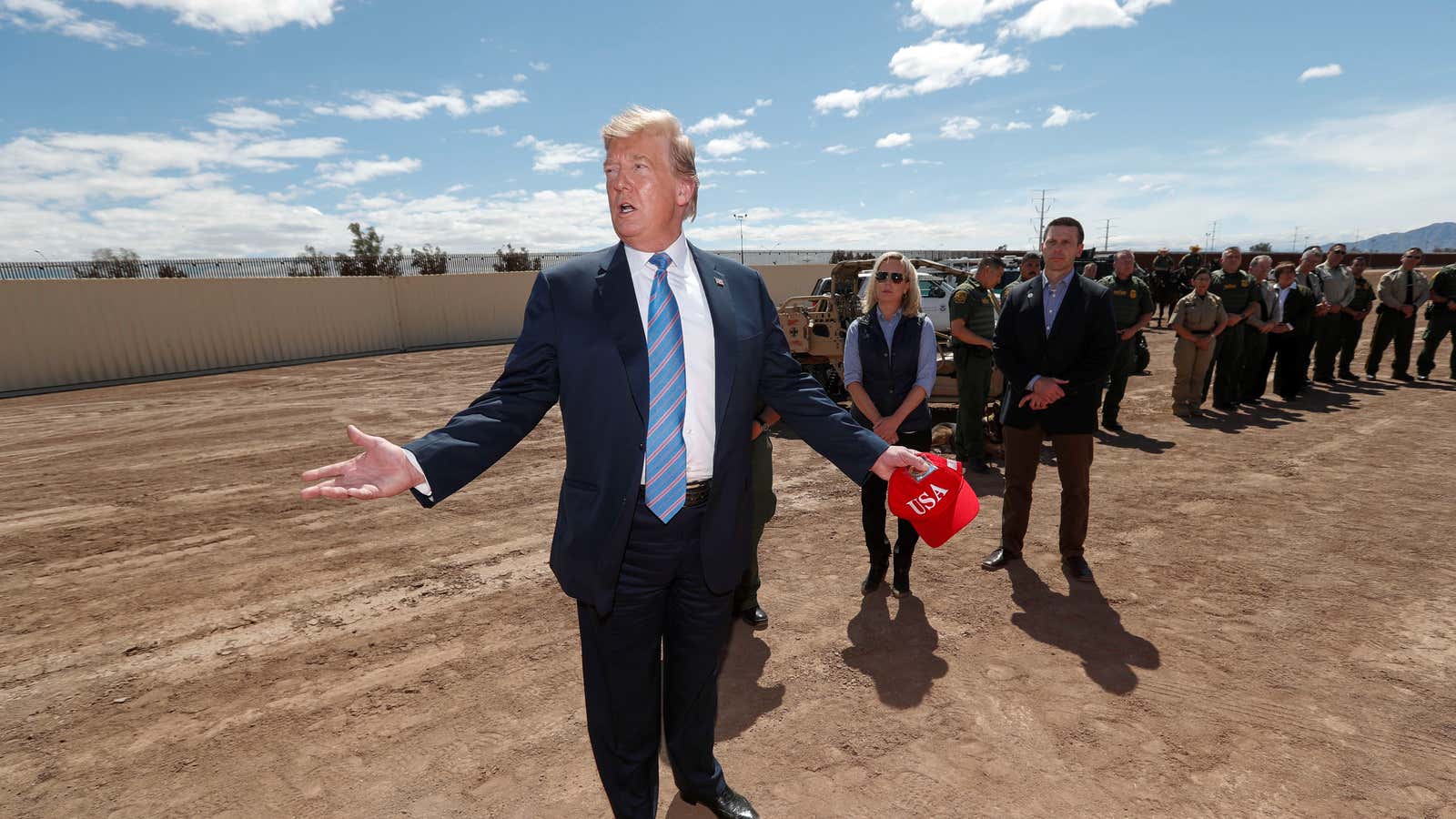Donald Trump unexpectedly announced yesterday that he would impose a 5% tariff on all goods imported into the US from Mexico, and keep increasing the rate until, as he tweeted, “the Illegal Immigration problem is remedied.” As the US president opened up yet another front in his trade war, financial markets reacted with alarm.
Mexican peso
The Mexican currency dropped by 3% today against the dollar, it’s worst one-day decline in seven months.
As with the tariffs on Chinese goods and steel and aluminum, new tariffs on Mexican goods would increase costs for US consumers. The US imported $372 billion in goods and services from Mexico last year, particularly vehicles, machinery, and fresh fruit and vegetables.
The tariff news isn’t really helping the US dollar more broadly. Against other currencies, such as the yen, which is a good barometer for risk in markets, the greenback is weaker.
Carmaker stocks
Last year, Japanese automakers produced 1.25 million cars in Mexico, mostly bound to the US. European companies, such as Volkswagen, also have large bases in Mexico. The announcement of the tariffs, due to come into effect on June 10, has hit stocks across the industry.
Stock indexes in general are reacting negatively. The Euro Stoxx 50 declined more than 1.5%, while indexes in Japan, China, and Hong Kong all closed the lower. Futures of the S&P 500 index are also down, implying that the US benchmark index is set for its fourth consecutive week of losses.
German government bonds
Earlier this month, the OECD said the US-China trade war was the biggest threat to the global economy. Analysts are already predicting that the Mexican tariffs suggest a US-China trade deal is unlikely, increasing concerns that a global economic downturn could tip over into a recession. This is leading traders to load up on safe assets, particularly government bonds.
Today, the yield on Germany’s 10-year government bond dropped to a record low of -0.213%, according to Bloomberg. For bonds, prices move inversely to yields. The previous record low yield was hit in July 2016, after the UK unexpectedly voted to leave the European Union.
US government bonds
The market for US government bonds is sending warning signals about a recession. The US 10-year Treasury bond yield is at 2.16%, the lowest in almost two years. Traders are demanding so much long-term safe debt that yields are now lower in these maturities than short-term bonds. This is called an inverted yield curve, which historically has preceded a recession. With the intensification of Trump’s trade war, the yield curve inversion has gotten more extreme. In normal times, yields are higher as the maturities get longer (like one year ago in the chart below) because investors demand a premium to hold debt for longer.
